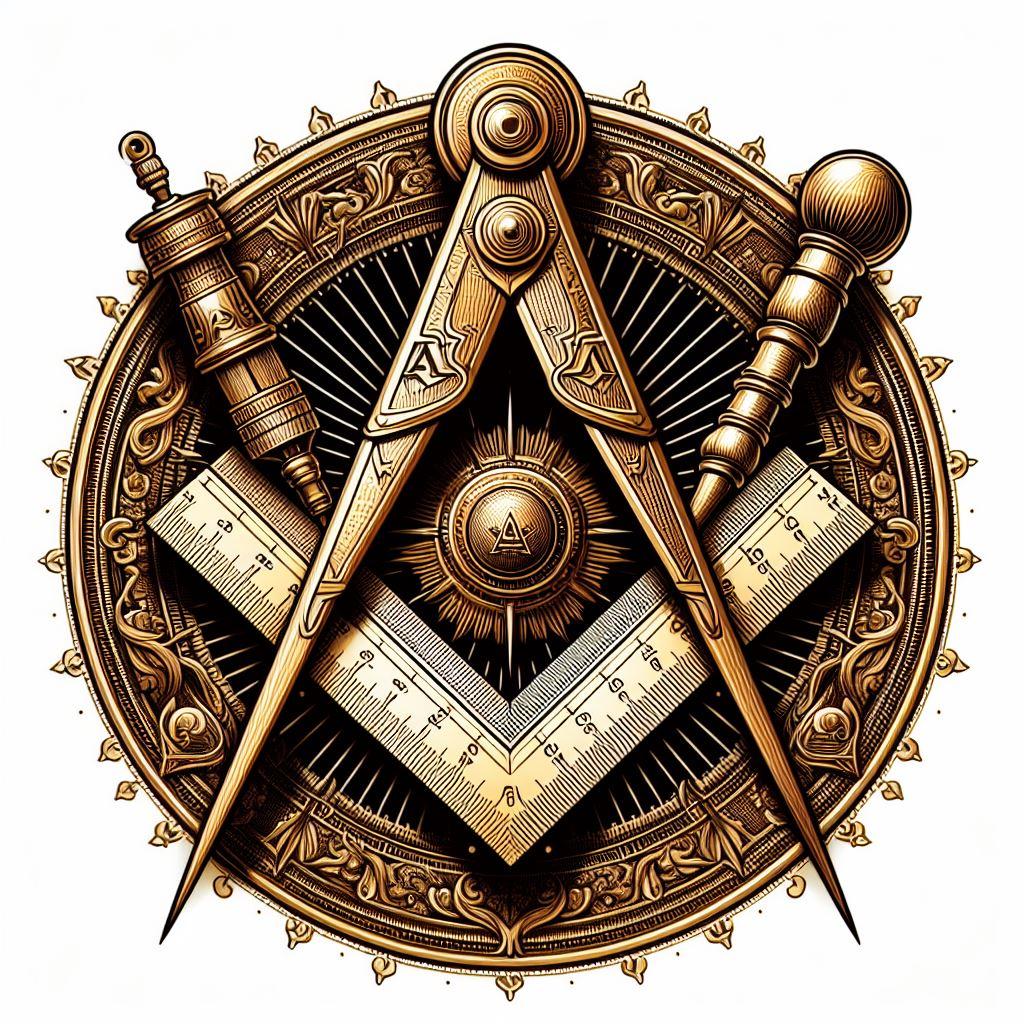Freemasonry, with its rich history, symbolism, and secretive nature, has captivated the minds of scholars, researchers, and enthusiasts alike. It is an esoteric tradition that has been associated with various philosophical, spiritual, and intellectual movements throughout history. This article delves into the fascinating connections between Freemasonry, esotericism, and genius clusters, exploring the concept of ars memoriae, the impact of the Enlightenment, and the role of the liberal arts and sciences.
1. Freemasonry and Esotericism
Freemasonry originated in the late 16th to early 17th century and evolved into a secretive fraternal organization. Rooted in ancient mystery schools and trade guilds, Freemasonry encompasses a blend of esoteric teachings, symbolism, and ritual practices. It embraces moral, ethical, and spiritual principles, drawing inspiration from various religious and philosophical traditions.
The esoteric nature of Freemasonry involves the transmission of hidden knowledge, often communicated through allegorical stories and symbols. These symbols and rituals are believed to hold deeper meanings, accessible only to those initiated into the craft. Freemasonry encourages self-improvement, enlightenment, and the pursuit of knowledge, which are key themes that connect it to the fields of philosophy, arts, and sciences.
2. Ars Memoriae: The Art of Memory
The concept of ars memoriae, or the art of memory, holds significance within Freemasonry. Derived from ancient mnemonic techniques, the art of memory involves the use of symbols, associations, and visualization to enhance memory and stimulate creative thinking. Freemasons, particularly in the Scottish Rite, employ mnemonic devices to encode and transmit knowledge, allowing initiates to recall and understand complex ideas more easily.
The art of memory has deep roots in classical antiquity, with figures like Simonides of Ceos and the Roman orator Cicero exploring its potential. In Freemasonry, the use of symbols, gestures, and ritualistic practices aids in the cultivation of memory, while also acting as vehicles for transmitting esoteric knowledge and fostering personal and spiritual growth.
3. The Enlightenment and Freemasonry
The Enlightenment, a transformative intellectual movement spanning the 17th and 18th centuries, emphasized reason, science, and individual liberty. Many key figures of the Enlightenment were also Freemasons, such as Voltaire, Benjamin Franklin, and Jean-Jacques Rousseau. Freemasonry provided an environment conducive to the exchange of ideas, fostering a sense of intellectual freedom and encouraging critical thinking.
During the Enlightenment, Freemasonry played a crucial role in disseminating new knowledge, promoting scientific inquiry, and challenging dogma. The fraternity’s commitment to intellectual curiosity and its embrace of diverse perspectives helped lay the foundations for the Age of Reason, driving advancements in fields like mathematics, astronomy, and physics.
4. The Liberal Arts and Sciences
The liberal arts and sciences, encompassing fields like philosophy, mathematics, rhetoric, and astronomy, have long been regarded as essential pillars of education. Freemasonry places significant emphasis on the liberal arts and sciences, considering them essential tools for the cultivation of an informed and well-rounded individual.
Freemasons are encouraged to engage with the liberal arts and sciences as part of their personal development. By studying these disciplines, Freemasons aim to acquire a broad base of knowledge, refine their critical thinking skills, and develop an appreciation for the interconnectedness of various fields of inquiry. This approach aligns with the Enlightenment ideals of education, reason, and the pursuit of truth.
5. Genius Clusters and Freemasonry
Throughout history, genius clusters—groups of exceptional individuals who come together to exchange ideas and collaborate—have emerged and made significant contributions to various fields. Freemasonry has often served as a catalyst for such clusters, providing a platform for brilliant minds to connect and engage in intellectual discourse.
a. Defining Genius
- Genius transcends mere intellect; it embodies creativity, intuition, and inspiration.
- Ancient cultures revered genius as a divine spark—an otherworldly gift bestowed upon select individuals.
b. Genius Clusters
- Definition: Genius Clusters refer to groups of individuals whose collective wisdom and creativity amplify their individual genius.
- Freemasonry’s Role: Freemasonry, with its esoteric teachings and shared experiences, fosters such clusters.
Within Freemasonry, genius clusters form as Freemasons from diverse backgrounds and areas of expertise come together to share their knowledge and insights. The fraternity’s emphasis on enlightenment, the liberal arts and sciences, and the exchange of ideas has historically attracted individuals of exceptional talent, fostering an environment conducive to the development of groundbreaking intellectual and creative endeavors.
Freemasonry, esotericism, and genius clusters are interconnected phenomena that have shaped the intellectual landscape throughout history. The art of memory, the impact of the Enlightenment, and the emphasis on the liberal arts and sciences within Freemasonry have all contributed to the development of intellectual, philosophical, and scientific advancements.
By embracing esoteric teachings and symbolism, Freemasonry has encouraged self-improvement, the pursuit of knowledge, and the exploration of profound ideas. The fraternity’s role as a platform for genius clusters has facilitated the exchange of diverse perspectives, fostering innovation and shaping the trajectory of intellectual progress.
As we continue to study and explore the connections between Freemasonry, esotericism, and genius clusters, we gain deeper insights into the complex interplay of philosophy, spirituality, and intellectual development that have guided human progress for centuries.
